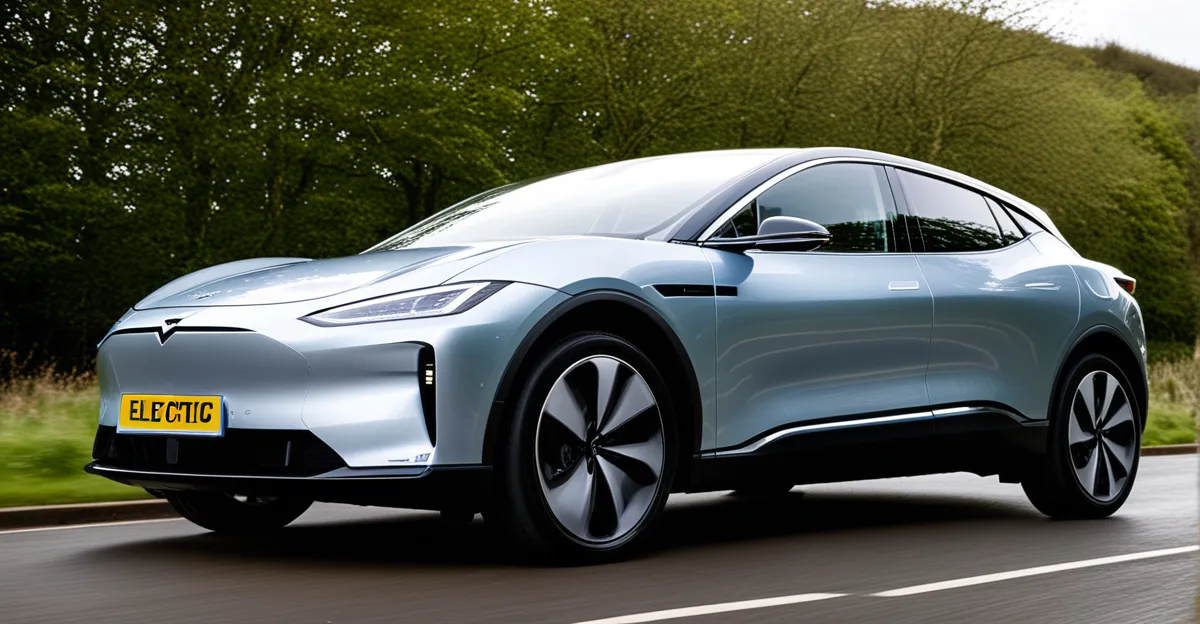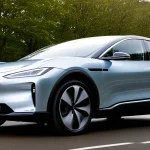The Current Landscape of Electric Vehicles in the UK
The UK automotive industry is witnessing a dynamic shift toward electric vehicles, with EV trends UK showing accelerated adoption rates. Recent statistics reveal that electric vehicles have captured a significant market share, reflecting growing consumer interest and expanding product offerings. For example, new EV registrations have risen sharply, underpinned by increased awareness and improved vehicle accessibility.
Leading manufacturers such as Tesla, Nissan, and Jaguar Land Rover are pivotal in driving this growth. These companies offer popular models that balance performance and affordability, making electric cars more attractive to UK buyers. This surge is further supported by a diverse range of incentives and improved infrastructure, which have helped ease consumer concerns.
Topic to read : How Are UK Automotive Manufacturers Adapting to Changing Environmental Regulations?
Key electric vehicle statistics illustrate this transition, highlighting a notable decline in sales of petrol and diesel vehicles. The UK’s commitment to sustainability and stricter emission standards accelerates this trend, positioning the EV market as a core component of the future automotive landscape. As adoption continues to rise, the industry evolves to support a greener and more technologically advanced motoring environment.
Advancements in Electric Vehicle Technology
Innovation in EV technology is rapidly transforming the UK automotive industry, with battery innovation at the forefront. Recent breakthroughs have significantly extended battery range and improved efficiency, addressing a key concern for many consumers: driving distance. For instance, modern lithium-ion batteries now offer higher energy density, enabling longer journeys without frequent recharging. This advancement directly boosts the practicality of electric vehicles.
Also read : How is Technology Transforming the Future of Automobiles in the UK?
Autonomous driving technology integration also reshapes EV capabilities. Many new models come equipped with smart systems that enhance safety and user convenience, such as adaptive cruise control and automated parking. These features are steadily evolving toward more advanced self-driving functions, promising a future where mobility is safer and more accessible.
The impact of these technologies extends beyond performance. As battery costs decrease and autonomous features become standard, the affordability of electric vehicles improves. This helps accelerate adoption and supports positive EV trends UK. Together, battery innovation and autonomous systems drive the ongoing evolution of electric vehicles, making them a viable, efficient alternative for British drivers.
Government Policies Driving EV Adoption
Government action plays a crucial role in shaping EV trends UK, with targeted UK EV policies accelerating electric vehicle adoption. The government offers various incentives such as grants for new EV purchases and support for home charger installations. These measures reduce upfront costs and help tackle common barriers to entry for consumers considering electric cars.
A landmark policy is the UK’s commitment to a 2030 ban on the sale of new petrol and diesel vehicles. This bold zero-emission target encourages manufacturers to focus on EV production, fostering innovation and increased model availability. Such regulations also signal long-term direction, providing clarity and confidence for industry investment.
In addition to consumer incentives, the government supports manufacturers through grants and research funding. This holistic approach boosts the UK automotive industry‘s transition toward electric technology. Over time, sustained policy efforts aim to build a robust EV ecosystem, encompassing infrastructure, manufacturing, and market growth, all aligned with broader climate goals. Through these well-coordinated measures, the UK is set to maintain momentum in establishing itself as a leader in electric vehicles.
Impacts on UK Automotive Manufacturing
Electric vehicle growth is reshaping the UK automotive industry with profound effects on manufacturing. Traditional production lines are adapting to accommodate EV manufacturing UK, requiring new technologies and components, particularly for battery assembly. This shift demands a comprehensive transformation in supply chains to source critical materials like lithium and cobalt responsibly.
The transition also drives workforce evolution. Reskilling and upskilling programs are crucial as employees learn to work with electric drivetrains, battery systems, and software integration. Manufacturers invest heavily in training to ensure the workforce meets the technical demands of modern EV production.
Major automakers and new entrants alike are expanding UK facilities to boost EV manufacturing UK capacity. These investments signal confidence in long-term market growth and help the country maintain its competitive edge. The automotive sector transformation includes embracing automation and advanced manufacturing techniques to improve efficiency and reduce costs.
This evolving landscape reinforces the UK’s role as a key player in the global electric vehicle market while exposing challenges related to supply chain resilience and talent acquisition. Addressing these issues is vital for sustaining the momentum of electric vehicle adoption and industry growth.
Infrastructure Developments and Challenges
The expansion of EV charging infrastructure is vital to supporting increasing EV trends UK. The UK’s transport networks have seen significant growth in public and private charging points, especially in urban centres and along major highways. This expansion improves accessibility and eases range anxiety—one of the most common concerns among potential EV buyers. However, rural areas still face limited coverage, highlighting an ongoing challenge in ensuring equitable charging access nationwide.
Innovative solutions such as fast chargers and ultra-rapid chargers are becoming more common, reducing charging times and increasing convenience. Integration with renewable energy sources also enhances the sustainability of this infrastructure, aligning with broader UK environmental policy objectives. For example, some charging stations utilise solar or wind power, which lowers the overall carbon footprint of EV use.
Grid readiness remains a critical issue. The surge in EV adoption requires upgrades to power networks to handle increased demand without compromising reliability. Addressing these infrastructure challenges is crucial for maintaining the momentum in the UK automotive industry and supporting the wider shift captured in current electric vehicle statistics. Robust charging infrastructure underpins consumer confidence and long-term market growth.
Sustainability and Environmental Impacts
Electric vehicles are central to advancing EV sustainability within the UK, significantly aiding in carbon footprint reduction. Shifting from petrol and diesel to electric power cuts tailpipe emissions, directly improving urban air quality and public health. According to the latest electric vehicle statistics, EVs produce substantially fewer greenhouse gases across their operational lifetime compared to conventional vehicles.
However, assessing the full EV sustainability picture requires considering the life cycle of vehicles, including production and disposal phases. Battery manufacturing involves resource-intensive processes, particularly mining for lithium and cobalt. Proper recycling and responsible sourcing are crucial to minimise environmental harm. Enhancing battery recycling technologies can reduce waste and conserve rare materials, aligning with the UK’s stringent environmental targets.
The role of EVs in meeting UK environmental policy goals is pivotal. By supporting cleaner transport, they contribute significantly toward the UK’s net zero targets. Transitioning the UK automotive fleet also depends on integrating renewable energy into EV charging infrastructure, further lowering emissions. Overall, sustainable practices combined with EV adoption underpin the UK’s commitment to a greener, cleaner future.
Economic and Social Effects of EV Growth
The rapid expansion of the EV job market in the UK reflects increased industry investment in electric vehicle technology and manufacturing. As the UK automotive industry shifts focus, demand for skilled workers in battery technology, software development, and electric drivetrain assembly rises sharply. Reskilling programs play a vital role, helping traditional automotive employees transition to new roles tailored to evolving production needs.
Local economies benefit from the establishment of new EV manufacturing plants and research centres. This growth generates high-value jobs and stimulates adjacent sectors, including supply chain logistics and component manufacturing. The influx of investment boosts economic activity in regions historically reliant on conventional car production.
Societal impacts of EV adoption extend beyond the economy. Consumer attitudes increasingly favour sustainable and technologically advanced vehicles, driven by awareness of environmental benefits and government incentives. This positive shift encourages broader EV uptake, reinforcing market growth.
Overall, these combined factors illustrate a transformative period where employment, investment, and societal perspectives intersect, accelerating the UK’s transition to electric vehicles while creating new economic opportunities.
Future Projections and Industry Expert Insights
Current EV market forecasts predict sustained growth in the UK, with the UK automotive future shaped by accelerating EV trends UK. Industry experts project electric vehicle sales will continue rising sharply, driven by ongoing technological advances and supportive policies. This growth is expected to move beyond urban centres, reaching broader demographics and regions.
Experts highlight potential disruptors such as battery material shortages or supply chain constraints, which could temporarily slow expansion. However, innovations in battery recycling and alternative materials are anticipated to mitigate these risks. Additionally, evolving consumer preferences for connected and autonomous features will influence market dynamics.
Case studies of leading UK innovators demonstrate significant contributions to the sector’s evolution. Companies investing in battery innovation and smart vehicle technologies set benchmarks, encouraging broader industry adoption. Their collaboration with government initiatives further reinforces positive trajectory.
Overall, expert insights underscore a promising yet challenging path ahead. The UK automotive future is increasingly electric, supported by robust forecasts and pioneering innovation. Embracing these trends will be essential for stakeholders to maintain competitiveness and meet ambitious environmental targets.










